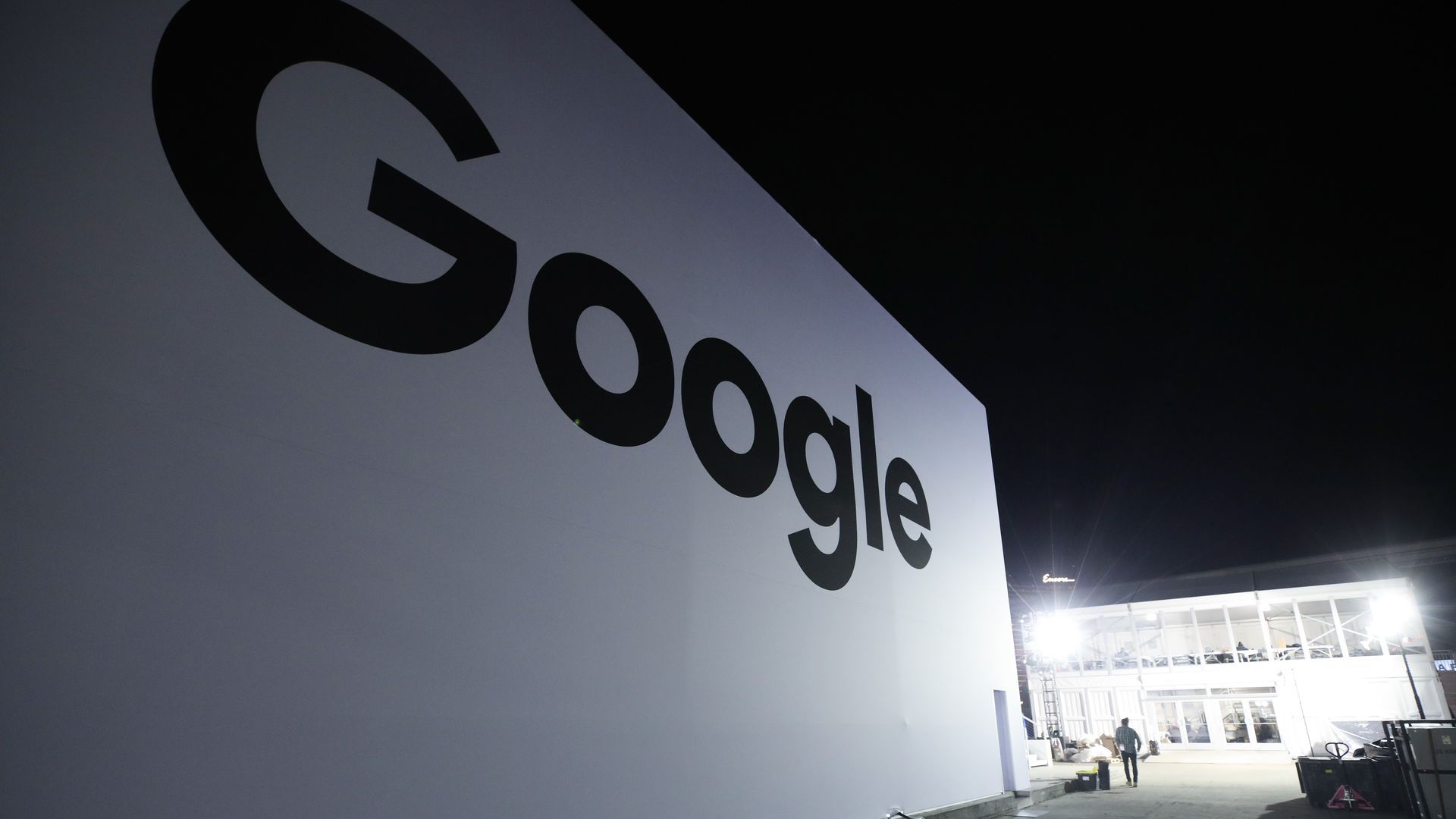Google says all advertisers must prove identities moving forward
Add Axios as your preferred source to
see more of our stories on Google.

Photo: Mario Tama/Getty Images
Google has changed its advertising policies to require all advertisers, not just those with political affiliations, to complete an identity verification program to show ads on its platforms, which include Google Search, Google News, YouTube and more.
Why it matters: Verification tends to weed out spammy advertisers, including those that sell things like price-gauged hand sanitizer or fake coronavirus face masks.
How it works: Advertisers will need to submit personal identification, business incorporation documents or other information that proves who or what they are and the country they operate in.
- Users will moving forward be able to see the advertiser's name and country of origin in the "Why this ad?" menu on the page the ad is served.
For marketers, the transition should be pretty painless. Google will be inviting advertisers to complete the verification program in phases.
- Advertisers will have 30 days to complete the program once notified. Failure to comply with the policy will result in temporary account suspensions.
- Google will start rolling out the policy with U.S-based advertisers in a phased approach and will release it internationally over the next few years.
The big picture: Google rolled out a similar process to verify political advertisers in 2018. Thursday's announcement was planned before the coronavirus pandemic, although it will be helpful to weed out spammy advertisers given the amount of bad actors trying to take advantage of the situation online by selling fake stuff.
Go deeper: Coronavirus misinformation seeds ground for digital scams
